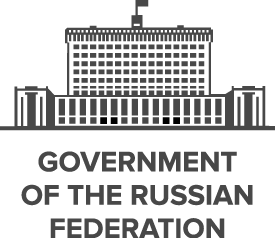Founded in the 12th century, the Principality of Muscovy was able to emerge from over 200 years of Mongol domination (13th-15th centuries) and to gradually conquer and absorb surrounding principalities. In the early 17th century, a new ROMANOV Dynasty continued this policy of expansion across Siberia to the Pacific. Under PETER I (ruled 1682-1725), hegemony was extended to the Baltic Sea and the country was renamed the Russian Empire. During the 19th century, more territorial acquisitions were made in Europe and Asia. Defeat in the Russo-Japanese War of 1904-05 contributed to the Revolution of 1905, which resulted in the formation of a parliament and other reforms. Repeated devastating defeats of the Russian army in World War I led to widespread rioting in the major cities of the Russian Empire and to the overthrow in 1917 of the imperial household. The communists under Vladimir LENIN seized power soon after and formed the USSR. The brutal rule of Iosif STALIN (1928-53) strengthened communist rule and Russian dominance of the Soviet Union at a cost of tens of millions of lives. After defeating Germany in World War II as part of an alliance with the US (1939-1945), the USSR expanded its territory and influence in Eastern Europe and emerged as a global power. The USSR was the principal adversary of the US during the Cold War (1947-1991). The Soviet economy and society stagnated in the decades following Stalin’s rule, until General Secretary Mikhail GORBACHEV (1985-91) introduced glasnost (openness) and perestroika (restructuring) in an attempt to modernize communism, but his initiatives inadvertently released forces that by December 1991 splintered the USSR into Russia and 14 other independent republics.
Following economic and political turmoil during President Boris YELTSIN's term (1991-99), Russia shifted toward a centralized authoritarian state under the leadership of President Vladimir PUTIN (2000-2008, 2012-present) in which the regime seeks to legitimize its rule through managed elections, populist appeals, a foreign policy focused on enhancing the country's geopolitical influence, and commodity-based economic growth. Russia faces a largely subdued rebel movement in Chechnya and some other surrounding regions, although violence still occurs throughout the North Caucasus.
Russia is a semi-presidential federation.
Members:
Resources
Displaying 336 - 340 of 1046Regional Law No. 2999/820-V-OZ amending Regional Law No. 118/16-III-OZ “On turnover of agricultural land”.
Article 8 shall be amended to add the following wording: “Local government shall have preferential right of purchase of plots of agricultural land at face value except for cases of expropriation thereof for public or municipal needs”.
Amends: Regional Law No. 118/16-III-OZ “On turnover of agricultural land”. (2015-03-06)
Regional Law No. 151-OD amending Regional Law No. 855-OD “On turnover of agricultural land”.
Article 7 shall be amended to add the following wording: “Plots of agricultural land pertaining to public or municipal property shall be allotted to natural and legal persons in accordance with Land Code of the Russian Federation”.
Amends: Regional Law No. 855-OD “On turnover of agricultural land”. (2014-04-01)
Regional Law No. 25-OZ “On regulation of land relations”.
The priorities of regional land policy shall be: (a) state regulation for ensuring conservation of valuable land, agricultural land and land of protected areas; (b) realization of the land right of citizens; (c) application of land tenure ensuring ecosystem preservation; (d) conservation of agricultural land as the basis of agricultural production; and (e) conservation of traditional forms of Cossack land tenure (art. 1).
Ministerial Decree No. 315 validating the Regulation on areas of protection of cultural heritage objects.
This Ministerial Decree establishes the modalities for designating areas of protection of cultural heritage objects, including land-use planning, mapping of boundaries, and requirements for land management within the boundaries of such areas. The purpose of designating protection areas for objects of cultural heritage shall be to conserve the natural landscape and to prevent negative impacts upon the objects of cultural heritage located in their natural environment.
Regional Law No. 3619-OZ amending Regional Law No. 3361-OZ “On protected areas”.
Article 12 shall be amended to add the following wording: “Regional executive bodies shall be responsible for decision-making related to land reservation for protected areas, with subsequent expropriation thereof and use restrictions imposed on economic activities”.
Amends: Regional Law No. 3361-OZ “On protected areas”. (2015-01-19)


